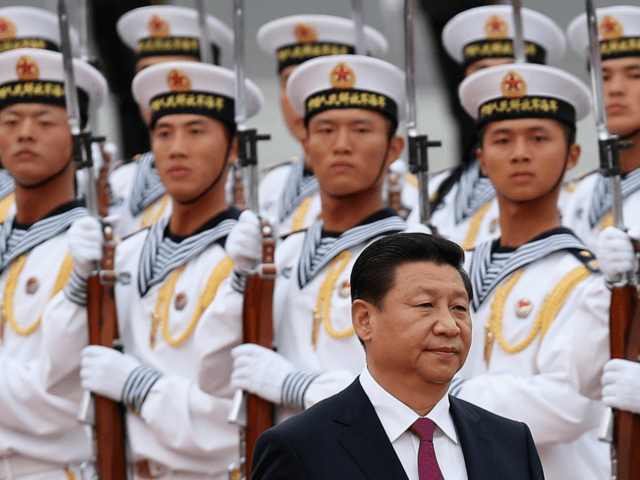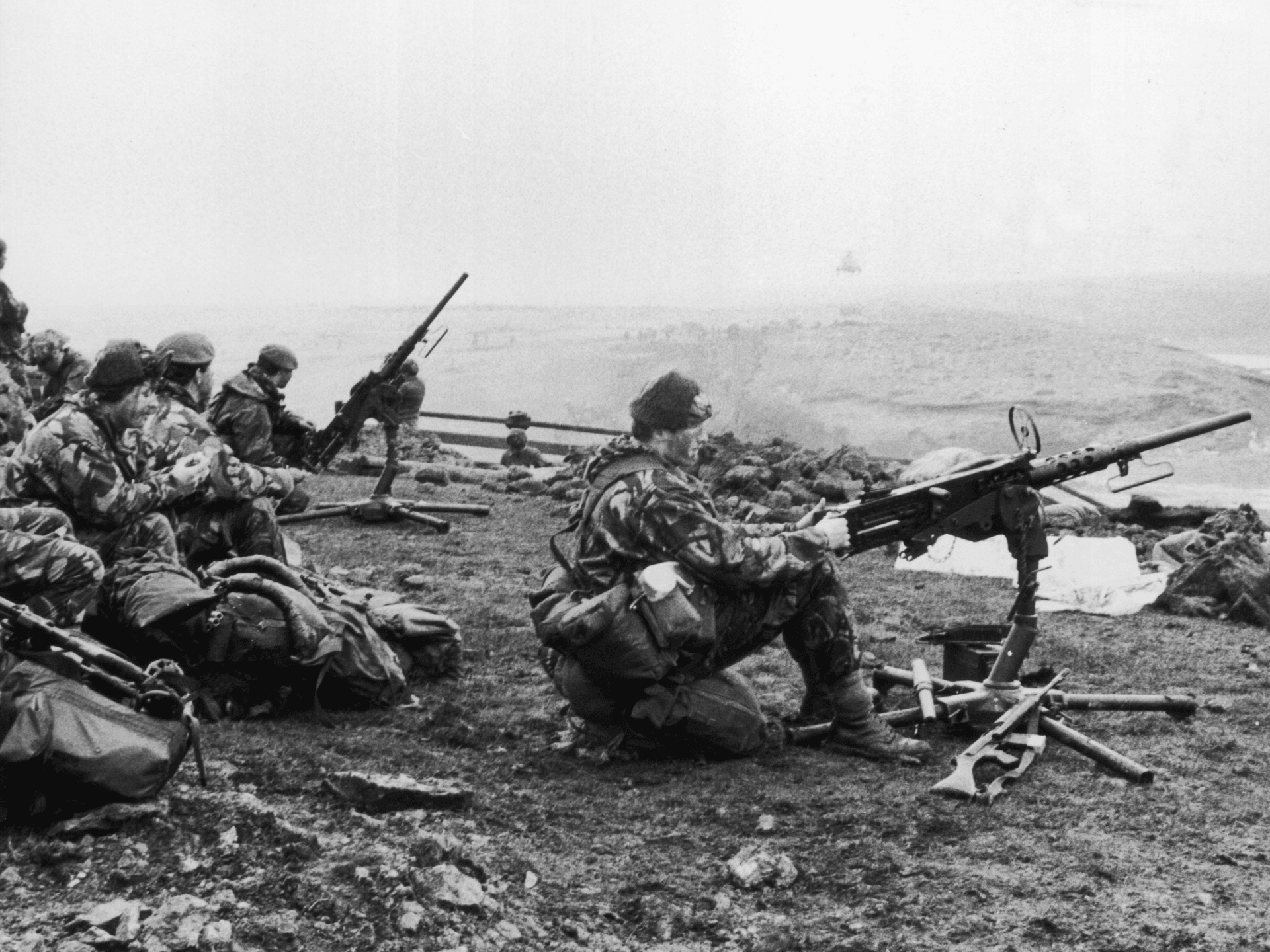Communist China has agreed to back Argentina’s tenuous claim to the British Falkland Islands, in exchange for Buenos Aires backing Beijing’s even more tenuous claim of ownership of Taiwan and signing onto the Belt and Road Initiative.
Following a meeting in the Great Hall of the People in Beijing between left-wing President of Argentina Alberto Fernández and Chinese dictator Xi Jinping on Sunday, China announced that it will formally back the South American country’s claim to Britain’s Falkland Islands, while Fernández pledged his support for the so-called one-China policy of Beijing which lays claim to Taiwan.
The Chinese Communist Party has never ruled Taiwan — the island is ruled by the modern descendent of the Chinese Nationalist government which was once the main government of China before the Communist revolutionary war. While Argentina makes historical claims to the Falklands for periods of occupation amounting to around 31 months in the past 200 years, the territory has generally been under British control since the 1830s, and the Falkland Islanders themselves strongly identify as British.
“Argentina said it will continue to adhere to the one-China principle on the Taiwan question and China will continue to support Argentina’s demand for the full exercise of sovereignty over the Malvinas (Falkland) Islands,” China’s state-run Global Times reported.
Rejecting the notion of Argentina’s claim to the Falklands, Foreign Secretary Liz Truss said on Monday: “We completely reject any questions over sovereignty of the Falklands. The Falklands are part of the British family and we will defend their right to self-determination.”
“China must respect the Falklands’ sovereignty,” Truss added.
The conflict between Argentina and Britain over the islands boiled over into a hot war after Argentina illegally invaded the Falklands on the 2nd of April 1982. The Falklands War, which lasted 74 days, saw 255 British soldiers die before the PM Margaret Thatcher-directed military effort forced Argentina to surrender after losing 649 soldiers of their own.
The inhabitants of the British Overseas Territory, located about 300 miles (480 kilometres) east of Argentina in the South Atlantic, are mostly descendants of British settlers, who strongly favour being under the sovereignty of the United Kingdom, which colonised the islands in 1841.
This is twenty years before Argentina emerged as a cohesive country following a lengthy civil war after the war of independence fought against the Spanish Empire.
Taiwan was never under the control of the communist government in Beijing, having its own distinct government since Chang Kai Shek’s nationalists fled to the island after losing the civil war to Mao Zedong’s communists in 1949. Aside from the fact that the CCP has never ruled over Taiwan, the country also has its own distinct culture, currency, and military.
Slovenia Kowtows to Communist China, Will Honour ‘One-China Policy’ on Taiwanhttps://t.co/YPoeRSl7D3
— Breitbart London (@BreitbartLondon) February 1, 2022
Coinciding with the announcement on the Falklands, Argentina officially signed onto Communist China’s Belt and Road Initiative (BRI), the premiere strategy of increasing the global influence of Beijing. The initiative has been branded as “dept-trap diplomacy” because China offers predatory loans to fund massive infrastructure projects in often impoverished countries.
Those countries that fail to repay the loans often cede control of the assets to China as repayment. While China attempts to tout the initiative as an economic boon for those who sign up, much of the economic gains are taken back to China, with Chinese firms typically constructing the installations with temporary workers shipped in from China.
The communist mouthpiece Global Times went on to report that the Argentinian delegation made a visit to the Chairman Mao Memorial Hall in Beijing, where the body of communist dictator Mao Zedong — who was responsible for the deaths of between 60 and 80 million people — lays in a mummified state under glass.
Prior to the trip, the Argentinan Ambassador to China, Sabino Vaca Narvaja told the state-run newspaper: “For both Argentina and the rest of the world, Mao is a very crucial state leader.”
The ambassador went on to note that President Fernandez’s left-wing political party, Partido Justicialista, has “very important historical ties” with the Chinese Communist Party, claiming that former Argentine president Juan Peron “maintained friendship and correspondence” with Mao Zedong.
Bowing to Beijing? Barbados Drops British Monarch as Head of State, Trading a ‘Queen for an Emperor’ https://t.co/mBdTogNrHU
— Breitbart London (@BreitbartLondon) November 29, 2021
Follow Kurt Zindulka on Twitter here @KurtZindulka


COMMENTS
Please let us know if you're having issues with commenting.